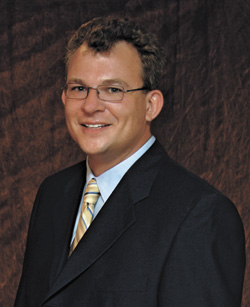Many people feel apprehensive about going to the dentist, and when your dentist suggests that you need a root canal, it becomes even more stressful. You’re sure to have a lot of questions about the procedure. What exactly is a root canal? Why do I need one? How long will it take? Do not worry too much – dentists save millions of teeth each year with root canals. It’s a common procedure and is very unlikely to have complications. To reassure you further, Flintlock Dental will answer the most common questions about root canals below to help ease your mind about the process.
Why do I Need a Root Canal?
When your dentist tells you that you need a root canal, the first question that arises is, ‘Why do I need one?’ There are a couple of reasons why you might need this procedure done. It treats conditions that make the pulp or nerve of the tooth inflamed and/or infected. This can occur when the tooth is cracked, there’s some dental decay, or there’s another type of break or injury to the tooth. Unlike a regular cavity, the damage that requires a root canal cannot simply be patched up on the surface, because it’s deep within the tooth.
There are a few symptoms to watch out for when it comes to your dental health that suggest that you need treatment such as a root canal. You might experience sensitivity to hot or cold food and drink, pain or tenderness in the tooth, and/or tender and swollen gums around the tooth. It’s also possible to see some discoloration on and around the tooth. If you notice any of these symptoms, set up an appointment with your dentist to get it checked out before it gets worse.
What Should I Expect from the Procedure?
Once your dentist has identified that you do in fact need a root canal, there are a couple of steps that will be taken. The root canal identification and procedure can happen in a couple of visits, based on how intensive it is.
First, you will probably consult with an endodontist, which is a dentist that specializes in the causes, prevention, and treatment of the diseases or injuries of the tooth’s pulp. If necessary, your dentist can help you choose a skilled endodonist who will be best suited to help you. Then it’s on to the procedure itself:
- An x-ray will need to be done so that the dentist can see the shape of the root canals and determine if there is any infection in the surrounding bone.
- It’s likely that your dentist will use some local anesthesia to numb the area of the infected or broken tooth. Even if the afflicted nerve is dead, numbing the area will ensure that nearby nerves aren’t an issue.
- The next step is to protect the tooth and keep it dry while drilling an access hole to the root canal. The pulp,bacteria, and any other related debris will be scraped out. This is done by inserting files increasing in size into the access hole until the affected tissue has been removed all the way to the bottom of the canal. The sides are scraped as well.
- Once the procedure is complete, a temporary filling is inserted into the tooth and a sealer is used to protect it.
- Another visit shortly after the initial procedure will allow the dentist to apply a rubber paste to fill up the canal and seal the tooth more permanently.
- A crown is usually placed to protect the mended tooth from future damage.
How Bad is Recovery from a Root Canal?
Having a root canal procedure done should relieve the pain completely after a short recovery period. Until you have your follow-up appointment, when the tooth is filled, sealed, and a crown placed, you should be careful about chewing with the tooth that was repaired. Keep the tooth safe from becoming damaged again or recontaminating the tooth’s interior before it has been completely fixed by sticking to softer foods and liquids or chewing on the other side of your mouth.
Once the final treatment has been done, you may experience some swelling and discomfort for a few days. How much discomfort you have will depend on how bad the infection and swelling was before the procedure. This pain can be controlled with your normal over-the-counter pain reliever. In most cases, the patient can go back to normal chewing activities within the following day.
As far as caring for your teeth after a root canal, you need to brush and floss as usual to help prevent any more infections or tooth decay from developing on the tooth that was treated, as well as the surrounding teeth. You also need to continue scheduling regular visits with your dentist to keep your teeth healthy.
Root canal procedures completely fix the problem with an inflamed, painful tooth the majority of the time. When a tooth is properly mended with a root canal, it doesn’t need more treatment for many, many years (if at all). To make sure your teeth and gums are healthy, keep your regularly scheduled visits to the dentist and make sure you brush your teeth twice a day and always remember to floss. If you do feel the onset of any tooth or gum pain, notice some swelling, or see any tooth discoloration, get in to see your dentist as soon as possible for diagnosis and treatment.
